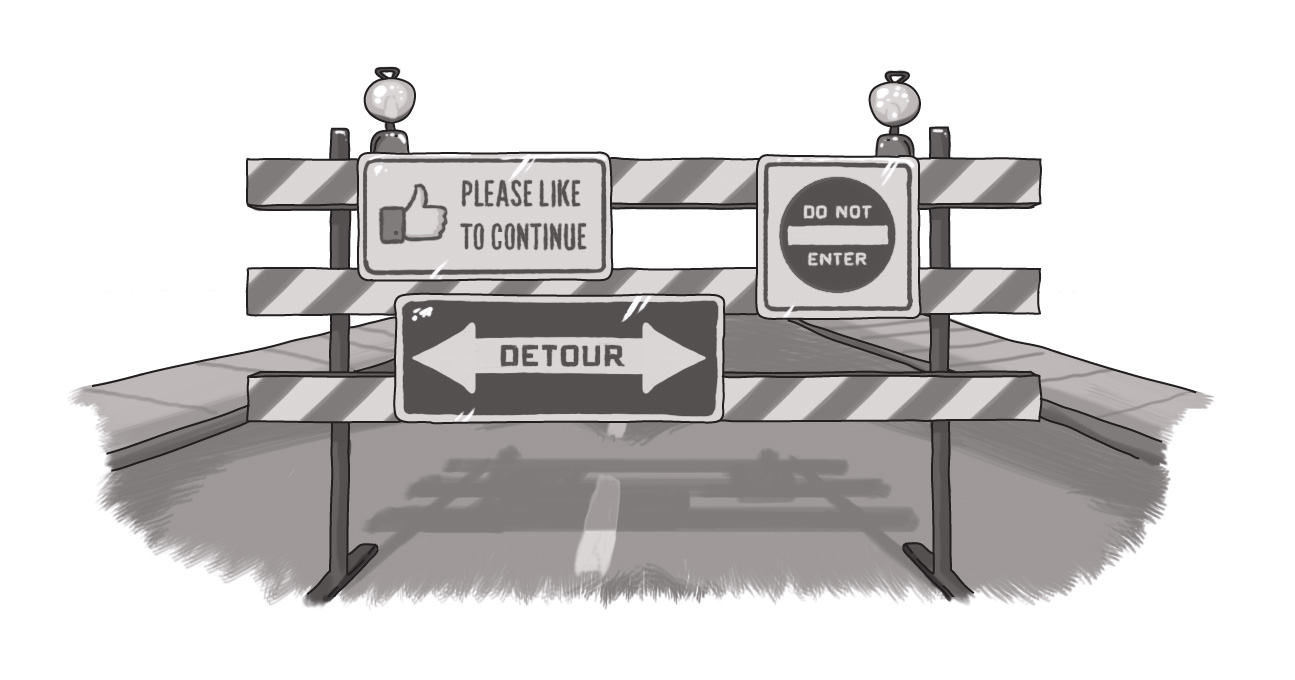These "Likes" Weren't Earned -- They Were Forced!

More and more agencies are spending time consulting and developing for Facebook -- it’s where consumers are, so it’s where our clients should be.
There are plenty of strategic reasons why business and agencies are attracted to Facebook: the absurd volume of users; the sociability of the platform; real-time info and interaction; the ability to obtain immediate feedback; and systematic means to track click and spend. But, in order to put some kind of measurable metric around the success of these strategies, for many companies 'Likes' became the yard stick to measure there success. They believed – and continue to believe -- the more friends/likes you have, the more popular or successful you are.
Insert, Like-Gating, a common tactic used to increase your likes. If someone wants to play a game you’ve designed, see your latest video, access a discount coupon, or enter a competition, they have to like your brand page before they are able to consume the content. This in theory can increase your reach, as some users will publish this information to their news feed, further enhancing your audience. But to me, creating a page (tab) for no other reason than to tell new users they have to 'Like' the brand before content is unlocked creates an unnecessary barrier. And because agencies often have a mandate to increase Likes and broaden the fan base -- and because everyone and their brother are doing it -- many agencies see nothing wrong with it.
Why have we let this get so out of control. Clients invest time and money in content creation. We ask them to invest in supplying prizes, training, and community managers to keep the conversation going. So we need there to be as few barriers as possible between content and consumer.
People who are forced to 'Like' a brand before they’re allowed to interact with it or consume some type of content aren’t 'Liking' it because they actually like it. They’re Liking it because they have to. It’s a temporary roadblock that’s easily detoured and will be easily reversed as soon as they’ve done whatever it was they came for (that’s assuming they don’t just make a u-turn in the first place).
If you're doing this, these 'Likes' weren’t earned -- they were forced!
This trend completely devalues the 'Like' button. It's becoming just another button that we unthinkingly click because we have to. It’s in danger of becoming Facebook’s equivalent of the “I agree to the Terms and Conditions” checkbox.
Our industry should be striving to create the kinds of experiences our users enjoy, actively seek out, and choose to 'Like' because they want to. The 'Like' should be akin to praise or a tip -- a thank you of sorts for a job well done. And, ideally, a promise to come back in the future for more.
I'm not saying to tell your clients not to ask people to like them or to not include large flashy arrows pointing to the Like button on their tab pages. I just don't think we should be making it a requirement to get to the good stuff!
We work hard to make our digital experiences as easy and aggravation-free as can be. If we’re successful, consumers will choose to 'Like' our clients’ pages, which then opens up the possibility of dialogue, interaction, and the development of an ongoing relationship. This, in turns, gives us the chance to keep them coming back for more.
This post will likely generate some strong feelings. My belief is not that trying to generate Likes is a bad thing, but rather it is essential to think about how you are achieving this goal -- and what your efforts actually mean to the relationship between businesses and those who Like them.
We would love to read your thoughts. Please add them in the comments below.
Should I force users to like my facebook page?
SUBSCRIBE TO OUR E-NEWSLETTER
 Subscribe
Subscribe

